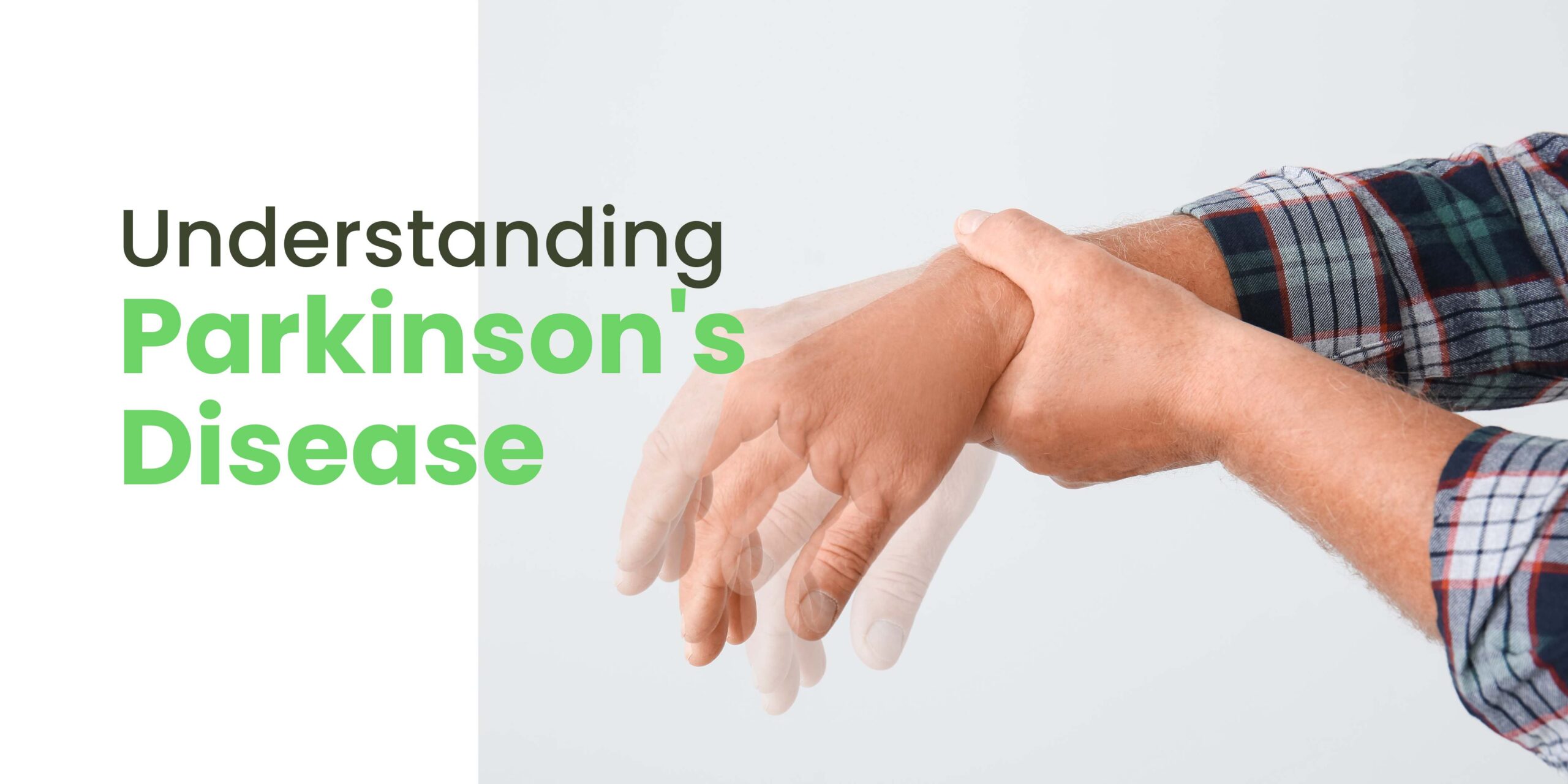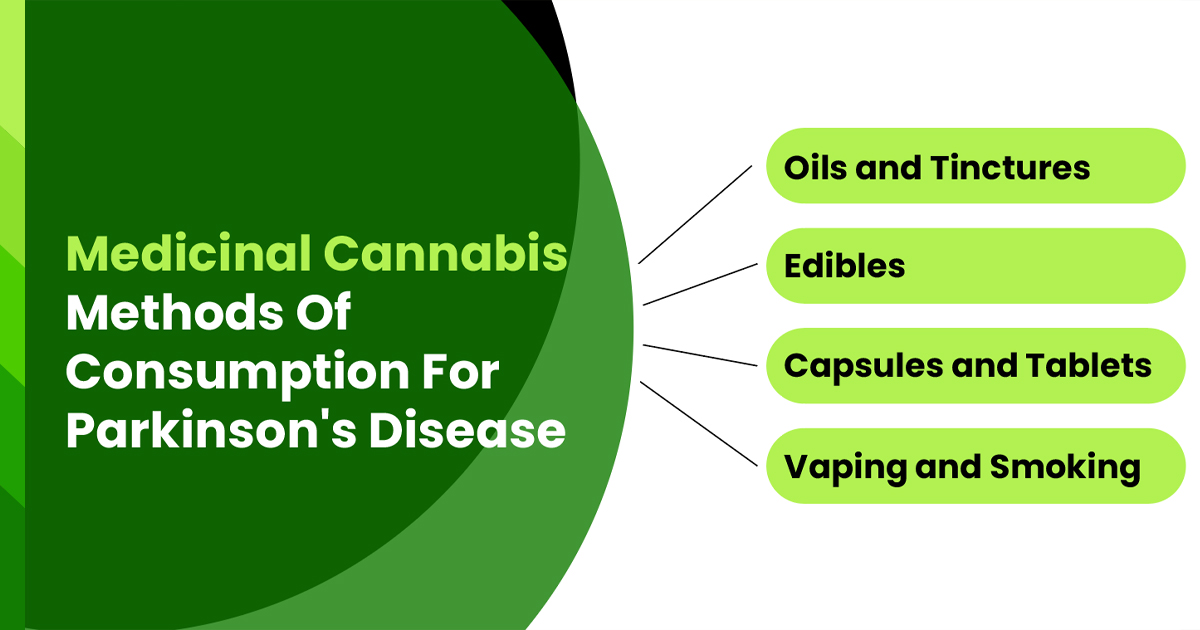Understanding the Benefits of Medicinal Cannabis for Parkinson's Disease
There’s nothing worse than Parkinson’s disease, a progressive neurological disorder that can cause tremors, stiffness, and balance problems. It’s most commonly found in people over 60, though younger people are starting to get it too. Despite advancements in treatments, managing Parkinson’s disease symptoms remains challenging for many.
In this article, we aim to explore the potential benefits of cannabis oil for Parkinson’s disease management, focusing on how medical cannabis can aid in providing relief to symptoms of Parkinson’s. We’ll delve into the science, the latest research, and what patients in Sydney and beyond need to know about integrating medicinal cannabis into their Parkinson’s treatment plan.
Understanding Parkinson's Disease

Parkinson’s disease (PD) is a neurodegenerative movement and mood disorder primarily affecting the brain’s region, responsible for producing dopamine, a neurotransmitter crucial for controlling movement and coordination. It is a condition that progresses with time. The exact cause of PD remains unknown, but several factors contribute to its development.
Parkinson's Disease Causes And Risk Factors

Genetic Factors – A mutation in a specific gene can cause PD, especially in cases that run in families.
Environmental Factors – Studies have linked pesticide and herbicide use, as well as heavy metal exposure to Parkinson’s.
Age – Parkinson’s is more likely to occur in people over 60, due to its aging-related nature.
Sex – Men are more likely to develop PD than women.
Other Risk Factors – Head injuries and certain medical conditions, such as diabetes and metabolic syndrome, may also contribute to the development of Parkinson’s.
Parkinson's Disease Symptoms

People with Parkinson’s disease experience a wide range of symptoms, which generally develop slowly. We can broadly classify the symptom into two types
Motor Symptoms:
- Tremors: Involuntary shaking, often starting in the hands or fingers.
- Bradykinesia: Slowness of movement, making everyday tasks challenging.
- Rigidity: Muscle stiffness that can cause pain and limit movement.
- Postural Instability: Impaired balance and coordination, leading to falls.
Non-Motor Symptoms:
- Cognitive Changes: Memory problems, difficulty concentrating, and even dementia in advanced stages.
- Mood Disorders: Depression, anxiety, and apathy.
- Sleep Disorders: Insomnia, REM sleep behavior disorder, and excessive daytime sleepiness.
- Autonomic Dysfunction: Issues with blood pressure regulation, digestion, and bladder control.
Parkinson's Disease Treatment Overview
The only treatment for Parkinson’s disease is managing symptoms since the disease has no cure as of now. While there are treatments like exercise and speech therapy to manage the symptoms, as well as surgeries like deep brain stimulation, none of these are a magical cure for Parkinson’s disease.
However, medical cannabis has shown promise in helping people with Parkinson’s. Let’s take a look at how people have been using medicinal cannabis for Parkinson’s disease.
Medicinal Cannabis and Parkinson's Disease

Medical marijuana plants contain several active compounds called cannabinoids, including THC (tetrahydrocannabinol) and CBD (cannabidiol), which interact with the endocannabinoid system to produce therapeutic effects.
Various medical conditions can be treated with cannabis-derived products like oils, pills, gummies, vapes, and tinctures.
Endocannabinoids play a crucial role in regulating several functions and processes, such as mood, sleep, appetite, and pain perception. Medicinal cannabis consists of cannabinoids that interact with the brain and body’s cannabinoid receptors (CB1 and CB2). This interaction can help modulate neurotransmitter release, reduce inflammation, and alleviate various symptoms associated with neurological disorders like Parkinson’s disease.
Cannabis Oil and Parkinson's
There have been several studies exploring the potential benefits of cannabis oil for Parkinson’s disease. A study published in the Journal of Psychopharmacology found that CBD improved the quality of life and well-being in people with Parkinson’s disease. According to another study published in a European Journal, medical cannabis significantly relieved pain and motor symptoms among PD patients.
Benefits and Uses of Cannabis Oil for Parkinson’s
- Reduction of Tremors and Muscle Rigidity
- Pain Relief
- Improvement in Sleep Quality
- Anxiety and Depression Management
Medicinal Cannabis Treatment Options

Different Strains and Their Specific Benefits for PD
Medicinal cannabis comes in various strains, each with unique cannabinoid profiles and therapeutic effects. Parkinson’s patients are commonly recommended the following strains
Indica – Known for their relaxing and sedative effects, Indica strains can help with muscle relaxation, pain relief, and sleep improvement.
Sativa – Sativa strains are more energizing and can help improve mood and reduce fatigue. While not typically used for severe tremors, they can be beneficial for daytime use.
Hybrid Strains – Combining elements of both Indica and Sativa, hybrids offer a balanced approach and are tailored to provide symptom relief without excessive sedation or stimulation.
Medicinal Cannabis Methods Of Consumption For Parkinson's Disease

Medicinal cannabis can be consumed in several ways, each of which has advantages and disadvantages:
Oils and Tinctures:
These are taken sublingually (under the tongue) for quick absorption. They offer precise dosing and long-lasting effects, making them suitable for ongoing symptom management.
Pros: Precise dosing, long-lasting effects, easy to use.
Cons: Slower onset compared to inhalation, taste may be unpleasant for some.
Edibles
Cannabis-infused foods and beverages provide a discreet and easy method of consumption. The effects take longer to onset but can last for several hours, which is beneficial for sustained symptom relief.
Pros: Discreet, long-lasting effects, no inhalation required.
Cons: Delayed onset, dosage can be harder to control.
Capsules and Tablets
These provide a controlled dosage and are convenient to consume, especially for those who prefer not to taste medicinal cannabis.
Pros: Controlled dosage, easy to consume.
Cons: Slower onset, effects may not last as long as edibles.
Vaping and Smoking
These methods offer rapid relief as cannabinoids are quickly absorbed through the lungs. However, they can irritate the respiratory system and may not be suitable for all patients.
Pros: Rapid relief, easy to adjust dosage.
Cons: Potential respiratory irritation, short duration of effects.
Accessing Medicinal Cannabis for Parkinson's Disease in Sydney
Accessing any kind of medical cannabis in Sydney or Australia requires you to have a prescription from a doctor or authorized prescriber. You can learn more about it in this blog.
If you’re looking for a GP to help you with medicinal cannabis for Parkinson’s disease, please head over to this blog to learn what to look for in a general practitioner in Sydney.
Embracing Medicinal Cannabis for Parkinson's Disease: A Path to Better Symptom Management
Interest in medicinal cannabis for Parkinson’s disease has surged, driven by promising research and anecdotal evidence. Parkinson’s symptoms can be controlled effectively with medical cannabis, which has emerged as a promising option.
Medical cannabis can reduce tremors, reduce muscle rigidity, improve sleep quality, and manage pain and anxiety in PD patients. While traditional treatments have their place, the integration of medicinal cannabis can provide additional relief and improve the overall quality of life for those affected by PD.
Speak to your doctor today to see how medical cannabis oils can help you with Parkinson’s.
FAQs
Frequently asked questions
Are there any risks or side effects associated with using medicinal cannabis for Parkinson's Disease?
Yes, there are potential risks and side effects. Common side effects include drowsiness, confusion, dizziness, low blood pressure, and dry mouth. In some cases, cannabis use can worsen symptoms like anxiety or hallucinations, especially in patients already experiencing cognitive decline.
How does medicinal cannabis interact with other medications for Parkinson's Disease?
Medicinal cannabis can interact with other medications, potentially causing adverse effects. For example, it can enhance the sedative effects of medications that cause drowsiness or interact with blood-thinning medications. It’s crucial to discuss with a healthcare provider before starting cannabis to avoid harmful interactions.
Should Parkinson's Disease patients consider using medicinal cannabis?
Patients should consult with their healthcare provider to weigh the potential benefits and risks of using medicinal cannabis. Each patient’s condition is unique, and a medical professional can help determine if cannabis is a suitable option based on individual health needs and current treatments.
Is there scientific evidence supporting the use of medicinal cannabis for Parkinson's Disease?
Some anecdotal reports suggest that Delta-8 THC may offer potential benefits for anxiety due to its purported milder psychoactive effects compared to Delta-9 THC. However, scientific evidence supporting its efficacy for anxiety is currently lacking. Additionally, individual responses to cannabinoids can vary, and factors such as dosage, frequency of use, and personal physiology should be considered. It’s advisable for individuals seeking relief from anxiety to explore a range of treatment options and consult with a healthcare provider for personalized recommendations.
Step into a world of relief with CannaAid’s dedicated approach to natural pain management.
We’re committed to alleviating suffering through plant-based medicine and providing a haven for those ready to break free from the restrictions of traditional medicine.








